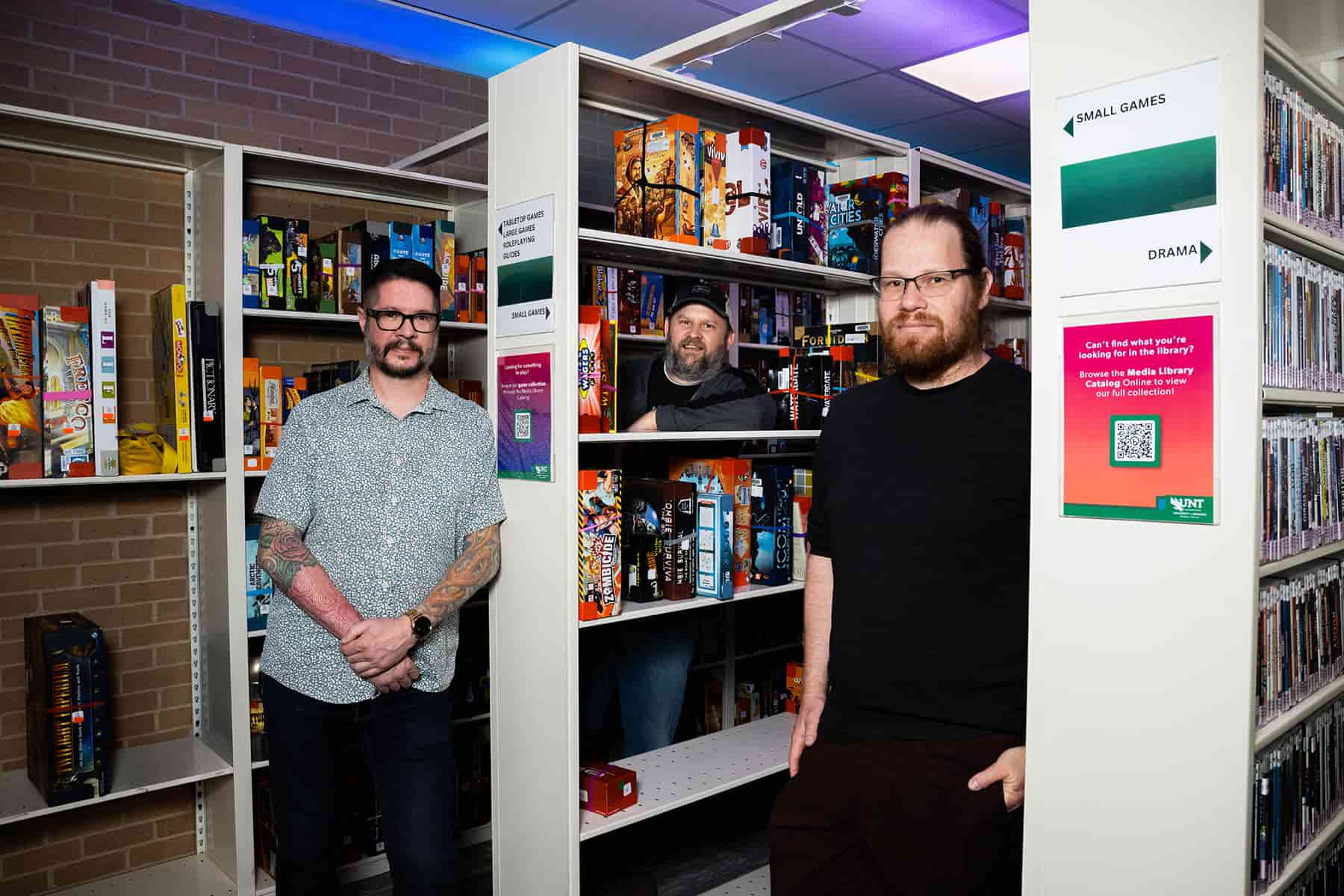DENTON (UNT), Texas — Students at the University of North Texas can now enroll in a new game studies and design degree program that offers individualized
coursework and career-focused concentrations. The program’s first cohort begins in
the Fall 2025 semester.
With faculty from across disciplines, the new game studies and design major, housed in the Department of Media Arts, gives students a leg up in a competitive industry. Students complete a standard
set of core classes before selecting a concentration for their degree — but the core
curriculum ensures some experience across all areas of specialization.
“To make a game feel good, you need people who wear different hats — engineers, artists,
narrative writers, coders,” said Gabriel Olson, program director and professor of
practice in video games. “We want every student in the major to gain some ability
in all aspects of development, from script writing to a little bit of coding.”
The major’s core curriculum includes a foundational survey course as well as classes
covering digital content and animation, game programming and design, narrative storytelling
and production. Students can then customize their degrees by choosing from several
concentrations: narrative design, available now; programming and game studies, launching
in 2026; and art and design, planned for 2027.
“We want our students to learn those core concepts, but they’re also able to focus
on one aspect of game development that most interests them,” Olson said.

While the major is new, UNT has offered its game studies and design certificate for several years. Building a major with the existing certificate as a blueprint was a collaborative effort between faculty in UNT’s Departments of Media Arts, English and Computer Science and Engineering. The process also involved developing brand-new classes, such as visual programming and game production.
Stephen Mandiberg, senior lecturer in media industries and video games, said the curriculum
was designed with every possible career pathway in mind.
“We thought about every job opportunity our students could pursue — whether it's in
the industry or in academia — and worked from there,” Mandiberg said. “The curriculum
is intended to be interdisciplinary; it asks them to work across teams.”
Read more at UNT News.